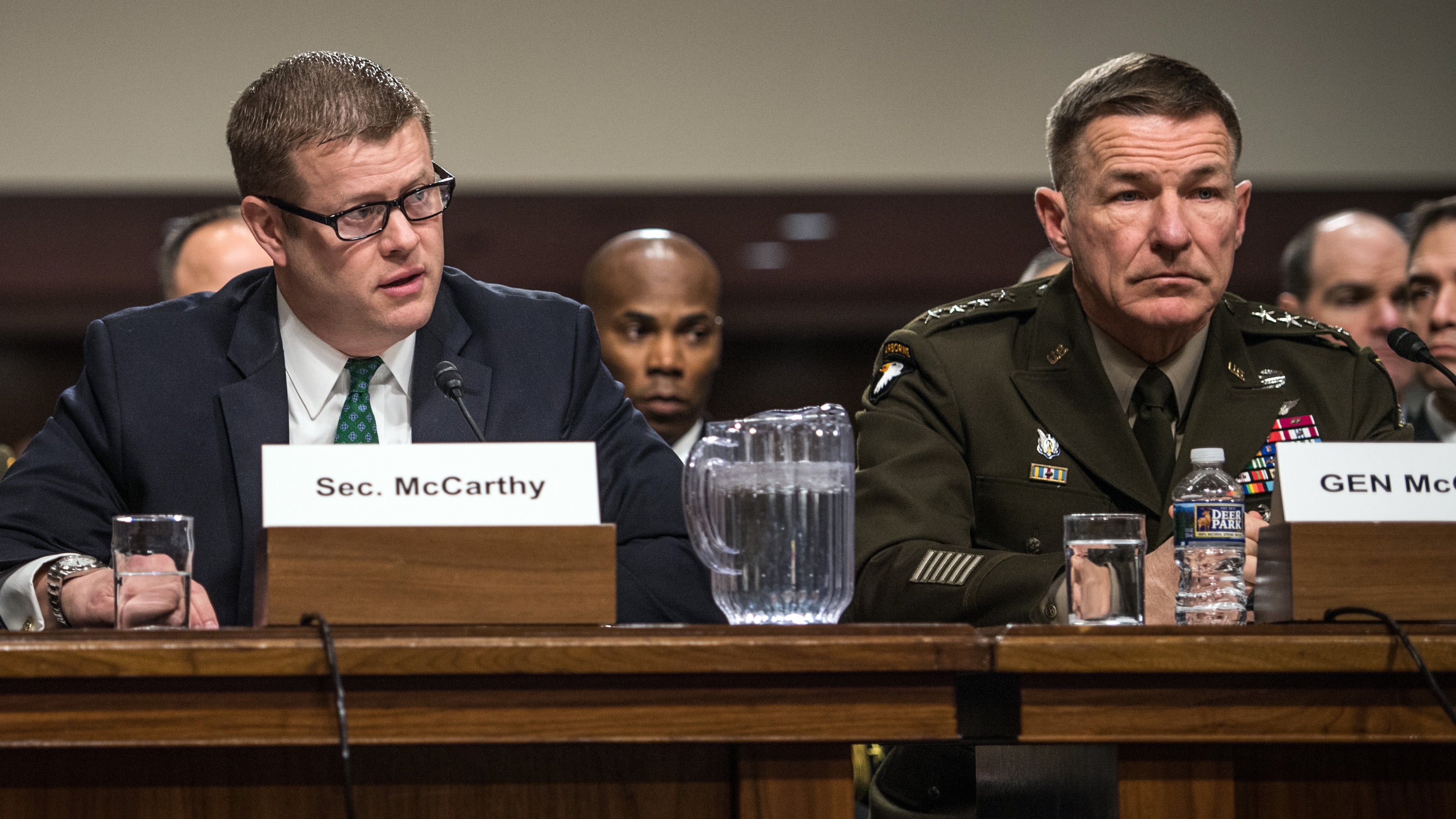Tight Budget, COVID-19 Both Impacting Army Plans
Tight Budget, COVID-19 Both Impacting Army Plans

Tight budgets are forcing the Army to make difficult decisions, Army Secretary Ryan McCarthy and Chief of Staff Gen. James McConville told the Senate Armed Services Committee.
In response to written questions about the Army’s fiscal year 2021 budget request, McCarthy said there isn’t enough money for everything, so tough decisions were made. “As there was a reduction in real buying power in FY21, the Army chose to fully fund our next-generation modernization priorities at the cost of investing as we would have liked in those critical legacy platforms,” he said.
For example, the Army has reduced purchases of the Joint Light Tactical Vehicle and cut funds for the Army Tactical Missile System service life extensions to free up money for other priorities. The Army also is growing troop levels as fast as needed to meet combatant command demands, he wrote.
The 2021 budget appears to be enough to maintain tactical readiness and improve strategic readiness, McConville said. “We are increasing our focus on individual and small unit readiness,” he said.
The Army responses to written questions are the result of a rare Senate Armed Services Committee decision to hold a “paper hearing” on the Army posture rather than have senators and Army leaders appear together. This was a precaution to prevent the spread of the COVID-19 virus.
Asked about the impact of COVID-19 on Army modernization and readiness, McCarthy said, “It is too early to determine the full extent of the impact.”
“We are working with our industrial base partners to determine their ability to perform within the current COVID-19 environment, and we are assessing effects on the Army’s ability to test, field and train on systems,” McCarthy wrote. “Whenever possible, we are seeking solutions to mitigate effects to preserve the readiness of the force. The health and safety of the workforce and soldiers is the Army’s paramount concern.”
McConville acknowledged that some programs may slow down, especially those that involve hands-on testing by soldiers. “We are also working closely with [Army Forces Command] to ensure necessary soldier involvement in these events,” he wrote. “Our current assessment, which will change as conditions change, is that 9 events will be canceled, 65 postponed, and 42 will continue as scheduled.”

